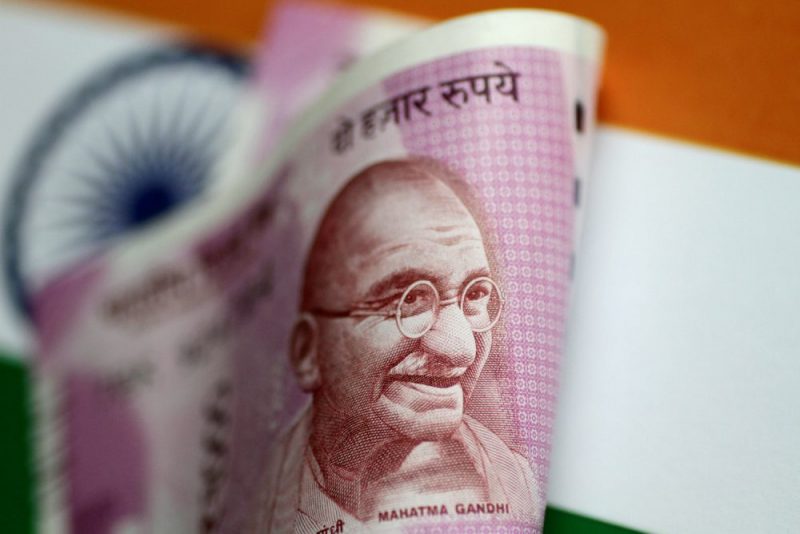The Indian rupee on Wednesday hit a record low, bringing its losses to more than 6% against the dollar so far this year, as analysts believe it has further to fall.
The currency weakened amid concerns about rising inflation and poor growth, even as the central bank sold dollars to limit losses.
The partially convertible rupee ended at 78.9650/9750 per dollar after touching a lifetime low of 78.97. The currency had closed at 78.77 on Tuesday.
“There was sporadic intervention even today and that helped avoid a breach of 79,” a senior trader at a foreign bank said. “But the [Reserve Bank of India] cannot prevent the depreciation, which is in line with what is happening globally.”
The central bank could make greater use of spot market intervention – which would run down central bank reserves – or may just opt to let the rupee weaken according to macroeconomic fundamentals, analysts and traders believe.
‘Depreciation Pressure’
“We believe depreciation pressure on INR would continue to persist in FY23,” QuantEcon Research said in a note, adding that it expects “INR could weaken towards 81 to a dollar before the end of FY23”.
Foreign institutional investors have sold local shares worth $28.4 billion so far in 2022 and dumped bonds worth $2.3 billion. Indian shares fell after a four-session rally, as worries about high oil prices and inflation returned to the forefront.
“The Indian rupee has been adversely affected mainly by [foreign institutional investors] pulling out funds from the equity market, rising crude prices, the deteriorating trade balance and dollar strengthening,” Emkay Wealth Management said in a note.
Asian currencies and stocks fell as weak US economic data dented risk sentiment and overshadowed optimism around the easing of some Covid-19 restrictions in China.
Asian Currencies Tipped to Wallow
Analysts forecast this week that Asian currencies will wallow in the near-term, with any respite from their first-half losses only likely to come in the form of proactive policy normalization by regional central banks combined with a Chinese recovery.
A mix of elevated commodity prices and narrowing interest rate differentials have piled pressure on most Asian currencies. Foreign money has flowed out of emerging Asia, excluding China, for five months in a row in the face of a reluctance among central banks to hike rates.
The Taiwanese dollar, South Korea’s won and the Philippine peso have all weakened by more than 6.8% against the strong US dollar this year.
Mounting fears of a global recession have forced investors to flee stocks and riskier Asian assets in favour of bonds and the greenback, which recently hit a nearly two-decade high against major currencies.
While Asian central banks have turned more hawkish recently to control spiking prices, a focus on growth and relatively controlled inflation has meant rate hikes have not been as aggressive as those by the US Federal Reserve.
“Rate hikes (in Asia) are ultimately going to be of a smaller quantum and at a slower pace compared to the US Fed. So, policy rate differentials will continue to be moving against Asia,” Duncan Tan, a rates strategist at DBS Bank, said.
Of the 13 analysts and strategists interviewed this week, more than half expect Asian currencies to remain under pressure as long as aggressive Fed tightening persists.
“We could possibly see EMFX stabilization once peak hawkishness is reached, but any meaningful gains will hinge on growth and (the) extent of US dollar pullback,” Christopher Wong, FX strategist at Maybank, said.
- Reuters, with additional editing by George Russell and Jim Pollard
Note: Further details were added to this report on Asian currencies on June 30, 2022.
READ MORE:
Digital Rupee Will Help Cut RBI’s Operational Costs – ET
China, India Positive on G7 Plan to Cap Russian Oil Price
India Tech Firms Demand Delhi Delays New Cyber Rules
























